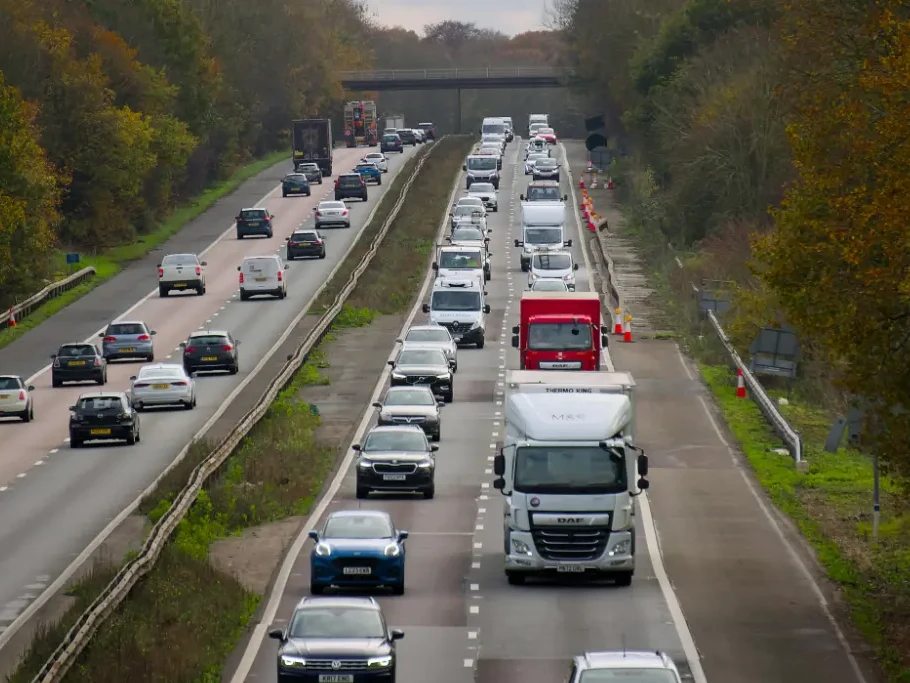Share this article
October in Scotland brings more than just falling leaves and colder days. With the clocks going back this Sunday and recent foggy, rain-soaked mornings still fresh in our minds, many parents are already noticing the impact of poor visibility on daily routines.
For those driving children to school or evening activities like football, swimming, or dance class, the seasonal shift isn’t just inconvenient – it can be dangerous. Reduced daylight hours, slippery roads, and misty conditions increase the risk of accidents, particularly involving pedestrians. And children, by nature, can be unpredictable around traffic.
At Gildeas Solicitors, we want to help families stay informed about road safety during this time of year – and highlight what your rights are if the worst happens and a child is injured on the roads.
Why Visibility is a Real Concern in October
By mid-October, sunrise in Glasgow and Edinburgh isn’t until nearly 8am. That means the school run often begins in the dark or low light. Add fog or heavy rain, and visibility can be severely reduced for even the most careful driver.
Many children, especially those in primary school, may not fully understand how difficult it is for drivers to see them. They might step into the road without checking or run across between parked cars. Older children walking to school or clubs on their own may also wear darker clothing or carry bags that obscure their visibility from behind.
That’s why brighter clothing, reflective accessories and extra care at crossings matter more than ever right now.
Tips for Parents Driving in Low-Light Conditions
Parents often find themselves juggling drop-offs before work, managing packed schedules, and navigating unfamiliar streets for weekend sports clubs or events. However, there are a few quick, practical ways to reduce risks on the road:
- Slow down in residential areas and near schools – even small reductions in speed can make a big difference in reaction time.
- Use dipped headlights in fog or rain and always ensure all your lights are clean and working.
- Be extra cautious around crossings and school entrances, especially where parked cars may limit your view of small children.
- Avoid distractions – whether it’s changing music or checking a message at a red light, every second counts in poor conditions.
- Allow extra travel time to avoid rushing, which often leads to errors in judgement.
Encouraging Children to Stay Visible
Even if you’re driving, your child is likely walking some of the way – whether that’s through the school car park or across a busy street to reach the football fields.
It’s worth having a quick conversation with them about staying visible and alert, especially during early mornings and evening pickups.
Some tips to share with them include:
- Wearing high-vis or reflective items, like jackets or a bag cover
- Crossing at designated areas, even if it takes slightly longer
- Making eye contact with drivers before stepping into the road
- Avoiding distractions like phones or headphones near traffic
Many schools and clubs already promote these ideas but reinforcing them at home can make a difference. For more practical advice on helping children stay safe near roads, Road Safety Scotland has a helpful resource for parents here.
What Happens if a Child is Injured in a Road Accident?
Despite best efforts, accidents can still happen. If your child is involved in a road traffic incident – whether as a pedestrian, cyclist or passenger – it’s important to understand your legal rights.
Under Scots law, children can’t bring legal claims themselves until they turn 16. Until then, a parent or legal guardian can raise a personal injury claim on their behalf. These types of claims might cover injuries from being hit by a vehicle, accidents during travel to school, or incidents caused by another driver’s negligence.
If no claim is made during the child’s youth, the three-year time limit for starting a claim begins once they turn 16. That gives them until age 19 to pursue compensation on their own behalf, if they wish.
It’s important to gather as much information as possible soon after an incident – including witness details, photos of the scene, and medical reports. Even if injuries appear minor at first, it’s important a medical professional rules out anything to prevent complications further down the line.
Who is at Fault in Child Injury Cases?
One common misconception is that children are always at fault if they “run out” into the road.
However, Scots law recognises that children don’t have the same level of judgement as adults.
Courts and insurers generally consider age, behaviour, and surrounding circumstances when determining liability.
In many cases, drivers are still expected to take extra care around children – especially near schools, parks, or known walking routes. Failing to adjust speed or attention in these areas can result in the driver being found liable.
Final Thoughts
This October, as we adjust to darker mornings and unpredictable weather, it’s worth taking a few extra moments to ensure children are safe and visible on the roads.
Whether you’re behind the wheel or helping your child get ready for the school run, small precautions now can make a big difference in preventing serious incidents.
By staying alert, encouraging road safety habits, and knowing your rights if something does go wrong, parents can help protect their children during one of the riskiest times of year for young pedestrians.
Still have questions?
Check out these useful links:
How to Claim on Behalf of Someone Else
Children and Contributory Negligence
How Long Do I Have To Make A Claim? A Simple Guide
How Much Will I Get? And 9 Other Questions About Personal Injury Compensation
Gildeas Solicitors is a recognised law firm specialising in personal injury claims, supporting you throughout Scotland from our offices in Glasgow and Edinburgh. We’re passionate about what we do, whilst putting our clients’ interests first. That’s why we make personal injury personal.
Considering our services? Call our dedicated team today on 0141 331 6070.






